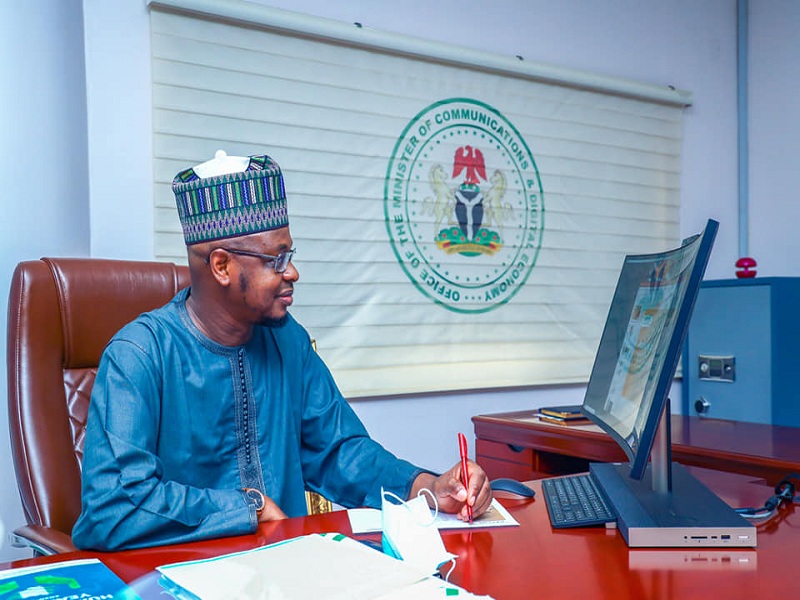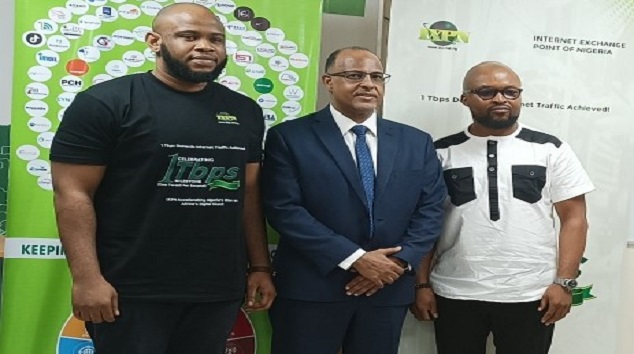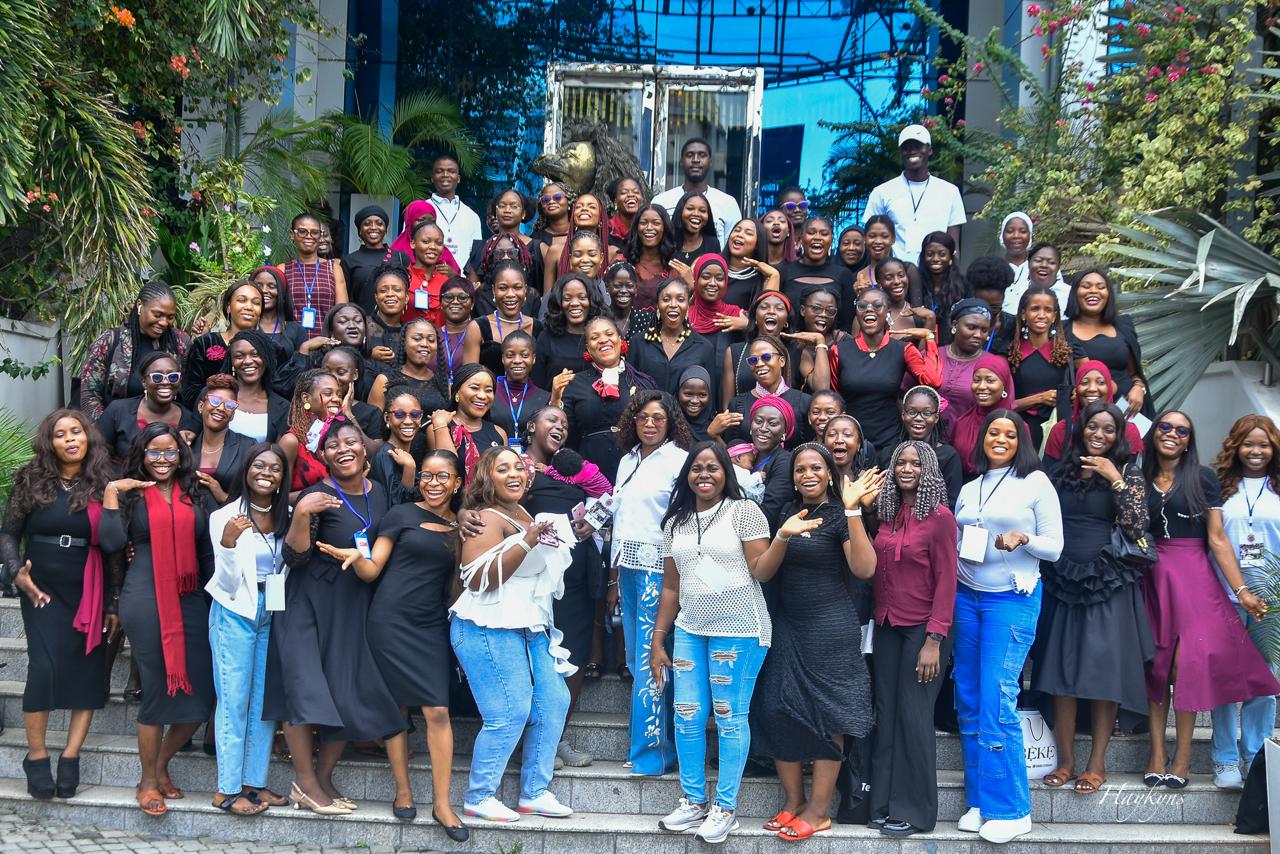Telecom
FG Reaffirms Commitment for Implementation of National eGovernment Master Plan

Dr Isa Ali Ibrahim Pantami, minister of Communications and Digital Economy has said that the administration of President Muhammadu Buhari GCFR is very passionate about the implementation of National eGovernment master plan where eGovernment becomes a blessing to everyone.

The Minister stated this on Wednesday at the virtual webinar, together with the Director General, National Information Technology Development Agency (NITDA), Mallam Kashifu Inuwa Abdullahi and MD/CEO of Digital Jewels Ltd, Ms Adedoyin Odunfa and members of the press to commemorate NITDA’s 20th Anniversary.
Dr Pantami in his remark disclosed how he presented a memo with the Head of Civil Service of the Federation before the Federal Executive Council on National Policy for virtual engagements in Federal Public institutions which were approved.
He added that virtual engagements are now formal and institutionalized form of engagements in Nigeria.
“At the ministerial level in Nigeria, our responsibility is more on National Policy development and Policy supervision,” the Minister noted.
The Minister stated that his focus was not just to have an active eGovernment but a secure one which will gain the confidence of all Nigerians.
He further disclosed that the National Digital Economic Policy and Strategy (NDEPS) which was developed for a digital Nigeria has eGovernment has one of its pillars and secured through another pillar ‘Cybersecurity”.
He noted that a subsidiary legislation of the Nigerian Data Protection Regulations (NDPR) which is a regulation that protects the privacy of data being implemented by NITDA, is one of the most effective initiatives of the current administration.
“I led a team then that developed the first ever NDPR in order to give confidence to our citizens that any data under the government is secured, and we have been implementing this”, he added.
Dr Pantami mentioned that series of eGovernment trainings have been organized where public and civil servants were trained on eGovernment.
He said some of the trainings are being conducted by NITDA in collaboration with Galaxy Backbone limited, adding that National eGovernment Training Centre which was established by this administration in Abuja at the Public Service Institute is a world class training centre where citizens, particularly civil servants and other underemployed or unemployed citizens are being trained.
He said recently, the President has unveiled the National Cybersecurity Policy, and awareness is being created to all citizens on how to cautiously navigate the internet, which is a foundational strategy for eGovernment.
“When you are online, you are exposed to so many challenges. We have been training citizens on cyber security not only at the federal and state levels but at local levels where trainings have been organized.
“From time to time, we issue advisory notes where citizens are being encouraged to take precautions on potential attacks,” the Minister concluded.
Mallam Abdullahi while giving his remark said that NITDA has recalibrated and refocused her efforts on the implementation of the NDEPS.
He disclosed that the Honorable Minister of Communications and Digital Economy unveiled the Agency’s Strategic Road Map and Action Plan which was a turning point for the Agency on digitalization of Nigeria.
“As we push for a digital economy, it is imperative to build the confidence and trust of citizens for either government services or other private services,” the DG noted.
He stated that the NITDA Strategic Roadmap and Action Plan 2021-2014 is anchored on seven strategic pillars; Developmental Regulations which focuses on indices needed to move Nigeria on the eGovernment index.
“Some of these regulations are regulatory instruments, guidelines and frameworks that prepare Nigeria for this journey”, the DG noted.
He stated that the Agency issued the NDPR which was to help Nigerians understand data privacy and build confidence for people to use data services.
“The regulations was innovative in the sense that apart from making sure we have a secure digital service, it also created an industry for our country. Data is the greatest resource in the digital economy,” he added.
Abdullahi said that Digital Literacy is another pillar which focuses on capacity building of eGovernment services, noting that it is important to build people’s capacities on proficient use of digital services.
He further stated that Digital Transformation is another pillar which uses digital technology for operational excellence in governance and to enhance transformational delivery of traditional government services.
The DG stated that Digital Innovation and Entrepreneurship and Promotion of Indigenous Contents are strategic pillars which basically involves the maximum empowerment and use of local innovations to come up with indigenous made solutions for the Nation.
“Last year, the Honorable Minister directed us to come up with innovation challenges in motivating our innovation ecosystem to come up with digital innovation solutions for our country which we have done through various innovation challenges across the country.
“We are currently working with Mass Challenge to build a framework for innovation challenge across the country”, the DG mentioned.
Abdullalhi stated that Emerging Technologies is a pillar which encourages citizens to develop and adopt strategies for emerging technologies.
He said that some of the emerging technologies are foundational techs that cut across so many industries like the block chain, artificial intelligence and robotics.
“However, Cybersecurity is a pillar which is very essential for Digital Economy and Digital Transformation within the government.
“We are making our cyber space secure and build the confidence of every Nigerian citizen,” Abdullahi concluded.
While making her presentation, Ms Adedoyin Odunfa, Managing Director/Chief Executive Officer, Digital Jewels, said the United Nations Sustainable Development Goals has aligned with NITDA in the areas of poverty eradication, gender equality, industry, innovation and infrastructure among others.
She disclosed that a survey on eGovernment development status was carried out in 193 United Nations Member States which reflected the importance of eGovernment to sustain the Sustainable Goals.
She categorically stated that if eGovernment is implemented effectively in any country, it will help in achieving the UN Sustainable Development Goals.
Ms Odunfa noted that facilitating policies and services through eGovernment, Open government data for promoting effective & transparent institutions, eGovernment for policy integration and e-participation to promote participatory decision making and service delivery are key trends to be considered in eGovernment.
Telecom
Nigeria Hits 1 Terabit Internet Traffic Milestone

IXPN, Nigeria’s leading Internet Exchange Point, is proud to announce a landmark achievement: crossing 1 Terabit per second (1Tbps) in aggregate peak domestic internet traffic for the first time.

This milestone signifies a major leap forward in developing Nigeria’s internet infrastructure and underscores the critical role of local internet infrastructure in driving economic growth, innovation, and connectivity for millions of Nigerians.
“This milestone is more than just a number. It’s a symbol of Nigeria’s digital maturity and our united strides towards becoming a tech-driven nation. By keeping local internet traffic within Nigeria, we reduce costs, improve speeds, and ensure our digital economy thrives with homegrown infrastructure.” said Muhammed Rudman the CEO of IXPN.
“Achieving 1 Tbps is a significant victory for Nigeria’s ICT ecosystem, a breakthrough for domestic internet traffic. It serves as a catalyst, enabling millions of Nigerians to enjoy faster, more affordable, and resilient internet connectivity.”

1 Terabit per second is a game-changer for Africa’s most populous country. To put it in perspective:
- Mega Video Calls: A speed of 1 Tbps can support over 1 million concurrent Zoom calls, allowing students, entrepreneurs, and professionals to connect and drive Nigeria’s digital revolution.
- Streaming Frenzy: With 1 Tbps, more than 200,000 people can stream HD Nollywood films or movies on Netflix simultaneously without any buffering or interruptions.
- Data Superpower: This speed enables the transfer of the entire contents of 50,000 smartphones—including photos, apps, and videos—in just one second.
For Nigeria, hitting this milestone means reducing reliance on international bandwidth, decreasing latency for local services, and strengthening our position as Africa’s digital heartbeat. This milestone is a testament to the power of collaboration, innovation, and the relentless pursuit of a faster, more connected Nigeria.
This accomplishment goes beyond technical advancements; it has significant economic implications. By encouraging local traffic exchange, IXPN reduces dependency on international bandwidth, leading to:
- Significant Cost Savings: By utilizing local data exchange, Nigerian businesses can save millions of dollars annually on international bandwidth fees.
- Enhanced Speed and Connectivity: With reduced latency, users experience smoother streaming, gaming, and real-time services, enhancing their overall online experience.
- Increased Resilience: Strengthening Nigeria’s internet infrastructure protects against global disruptions, ensuring consistent access to vital services such as healthcare and education.
- Improved Efficiency: Optimizes digital services like fintech, edtech, e-commerce, and e-health, propelling innovation and growth in these sectors.
Surveys conducted among IXPN members over the years have shown a growing percentage of local internet traffic in Nigeria. A recent report indicates that some connected members can localize or domesticate up to 70% of their internet traffic through IXPN.
“As more content providers, ISPs, banks, and public institutions localize their traffic through the IXP, end users benefit directly,” added Raphael Iloka (Marketing Manager). “We’re not just routing data — we’re building the foundation for Nigeria’s digital economy.”
The 1 Tbps peak highlights the remarkable impact of collaboration among all stakeholders. This milestone is a significant achievement not only for IXPN, but for the entire ICT ecosystem. IXPN deeply appreciates the vital contributions of all stakeholders involved.
To our Members and Partners: Your trust and participation have been essential to our growth. Together, we have established a hub where networks can interconnect, innovate, and thrive.
To the Government and Regulators: We express our sincere appreciation to the Nigerian Communications Commission (NCC) for all its support over the years and its vision of a digitally inclusive Nigeria.
To our Team: We extend our gratitude to our engineers, network administrators, and all other staff who work tirelessly behind the scenes to push boundaries.
To the Global Community: We are grateful to partner organizations like the Internet Society (ISOC). Your support and advocacy in domestic peering empower us all.
Reaching 1 Tbps is just the beginning. As data demands skyrocket with AI, IoT, 5G, and immersive technologies, IXPN is committed to staying ahead of the curve. Here’s how:
- Scaling Infrastructure: We are investing in advanced hardware and software to support multi-terabit capacities.
- Enhancing Resilience: We are strengthening our network to ensure uptime, security, and adaptability in an ever-changing digital landscape.
- Empowering Underserved Communities: We aim to expand our reach to rural areas, bridging the digital divide, and supporting agritech, edtech, and telehealth.
- Strengthening Africa’s Digital Sovereignty: Partnering with regional IXPs to keep Africa’s data on the continent.
Telecom
TD Africa’s TecHERdemy Empowers 400 Women to Lead in Tech

On April 17, 2025, the atmosphere at Yudala Heights was electric with pride, hope, and inspiration as TD Africa, the leading tech distribution company in Sub-Saharan Africa, celebrated the graduation of 400 young Nigerian women from its flagship TecHERdemy program.

Over the past six months, these incredible women immersed themselves in rigorous, hands-on training in Cybersecurity, Data Science, Artificial Intelligence, and Software Development. They are now confidently stepping into the tech world, ready to make their mark.
The event brought together top voices in the industry, including Dr. Leo Stan Ekeh, Chairman of the Zinox Group, who commended the graduates for their resilience and brilliance. In his keynote speech, he shared a hopeful vision for Africa’s future, calling these young women “the pioneers of a new, inclusive era of tech leadership on the continent.”
Mrs. Chioma Ekeh, CEO of TD Africa, also delivered a heartfelt message, urging the graduates to let their values guide them as they navigate their careers.
“Hold tightly to your values. Let integrity guide your work, let innovation fuel your dreams, and let your impact speak louder than your résumé,” she encouraged.
The ceremony was filled with emotion as graduates shared their personal stories of transformation. One of them, Yetunde Kayode, now a certified data scientist, summed it up beautifully: “This program changed my life. I’m walking away empowered, skilled, and deeply grateful to Mrs. Ekeh and the TecHERdemy team for believing in us.”
Fifteen exceptional participants were also honoured for their outstanding performance and leadership during the program, reminding everyone that excellence comes in many forms.
TecHERdemy, which launched in November 2024, was built with a simple but powerful mission: to equip young Nigerian women with globally relevant digital skills and open doors to a tech career. But what happened over those six months went beyond just skills; it sparked a movement.
This graduation wasn’t just the end of a program. It was the beginning of a brighter, more inclusive future for tech in Africa.
Telecom
MTN Nigeria Faces Class Action Lawsuit over Alleged Data Mismanagement

Nigerians have launched a class action lawsuit against MTN Nigeria, accusing the telecom giant of unexplained data usage and rapid depletion.

The controversy erupted after a viral post on X (formerly Twitter) showcased an individual’s interest in taking legal action, along with evidence of unusual data activity.
This post rallied many others to join the cause, sharing their own grievances and pledging support.
A Google Form was circulated to collect names of affected users, highlighting issues such as false data top-ups and excessive costs without value.
Comparisons to data usage and pricing in other countries only fueled the frustration, and numerous Nigerians expressed their determination to pursue justice.
Social media buzz amplified the issue, with mixed reactions ranging from encouragement to skepticism about the lawsuit’s potential impact.
Meanwhile, MTN Nigeria has not yet released an official response to these allegations.

 Telecom2 days ago
Telecom2 days agoMTN Nigeria Takes Broadband Services to the Next Level with FibreX Launch

 News2 days ago
News2 days agoSERAP Files Lawsuit Against NBC Over Ban on Eedris Abdulkareem’s Protest Song Tell Your Papa

 Telecom1 day ago
Telecom1 day agoDigital Transformation Remains Africa’s Gateway to Economic Advancement – Adumike

 Telecom1 day ago
Telecom1 day agoPAFON 2.0: Experts Discuss Pathways to Boost Financial Inclusion in Nigeria

 E-Financial1 day ago
E-Financial1 day agoCBN, NGX Group Defend Economic Reforms at Nasdaq

 General News1 day ago
General News1 day agoEFCC Clarifies SCUML Certificate Misuse amid CBEX Ponzi Scheme Scandal

 E-Financial2 days ago
E-Financial2 days agoFCMB Group Redefines Corporate Storytelling with The Power Of The Group TVC

 General News1 day ago
General News1 day agoFlashChange Partners Ruth Foundation to Empower Vulnerable Children in Alimosho with Skill Acquisition




























